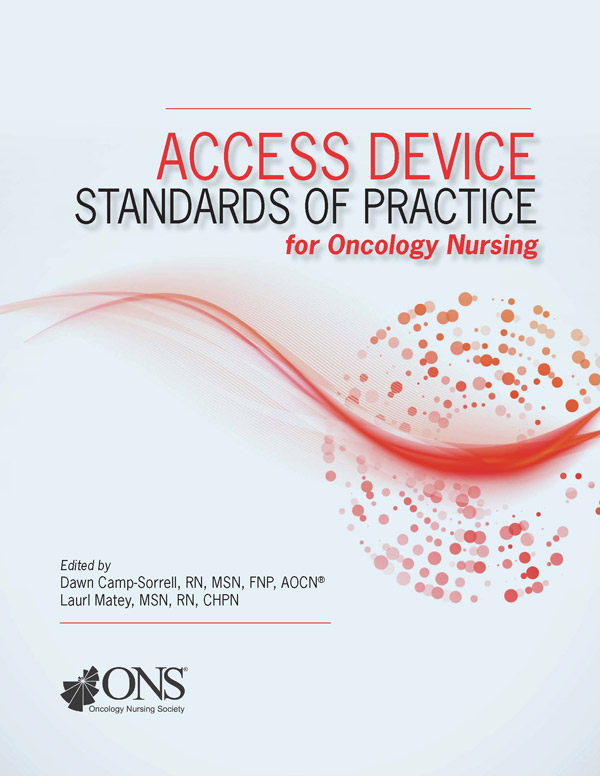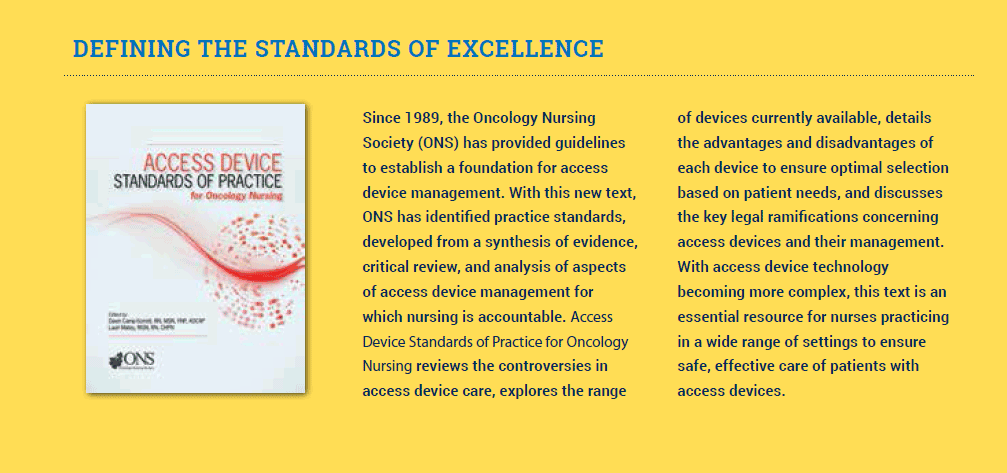New Access Device Standards Will Help Improve Safety in Your Practice
Access devices have been used for decades to administer the complex treatments and supportive care that oncology nurses deliver daily to patients with cancer. As these devices and other products evolve, nurses need evidence-based methodologies for critiquing their safety and effectiveness.
However, the problem is that little evidence is available to support many practices related to access device care. Because few randomized, controlled trials are conducted in this area, many practices rely heavily on expert opinion and, too often, on the adage, “That’s just the way we do it here.” This, unfortunately, isn’t good enough. Oncology nurses must base their practice on evidence when available, while also being aware when evidence is lacking. Nurses need to have up-to-date evidence to make informed choices.

Since 1989, ONS has recognized the need for oncology-specific access device guidelines, and just this month, the Society released the first edition of the Access Device Standards of Practice for Oncology Nursing (https://www.ons.org/access-device-standards), defining the standards of excellence in this area. Developed through a multiphasic process, this publication defines the standard of care for which evidence is definitive. The standards also provide recommendations for practice for which empirical evidence may not be as strong but other strong evidence and expert opinion support the practice. Equally important, the standards also define those practices for which no definitive evidence exists to support them.
The standards are organized by types of device; universal practices, venous device care, and specialty device care are summarized in table format for quick reference. Additionally, they address controversies, reinforcing what we know: standards, recommendations, and those practices for which no evidence exists are clearly defined.
Knowing what should be standard practice, what is recommended to consider for practice, and what you may be doing that is not based in evidence is critical to the advancement of quality oncology nursing care and providing a safe environment for patients with cancer. The Access Device Standards of Practice for Oncology Nursing provide oncology nurses with a practical tool to guide decision-making for the best possible patient care outcomes.
Oncology nurses must base their practice on evidence when available, while also being aware when evidence is lacking. Nurses need to have up-to-date evidence to make informed choices.

